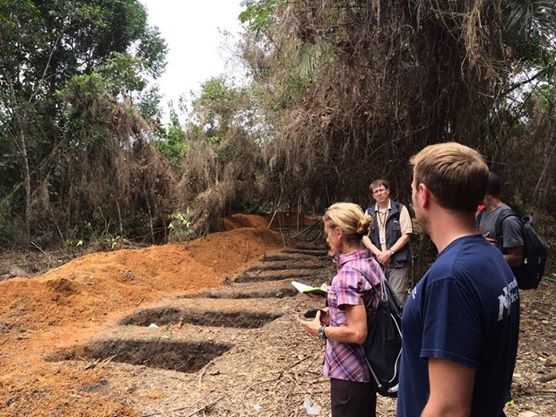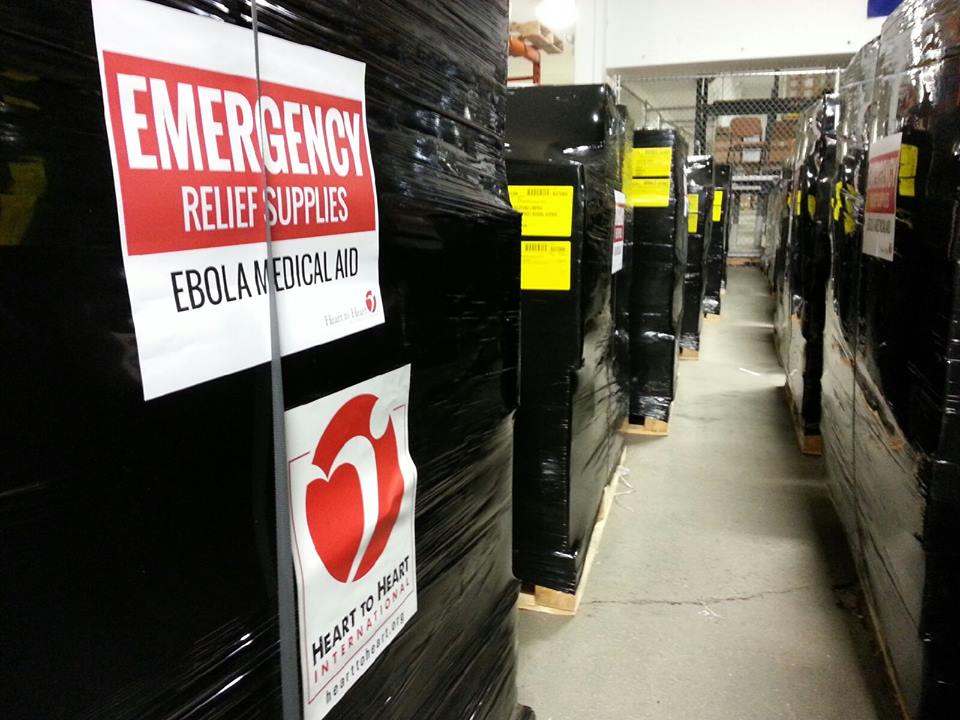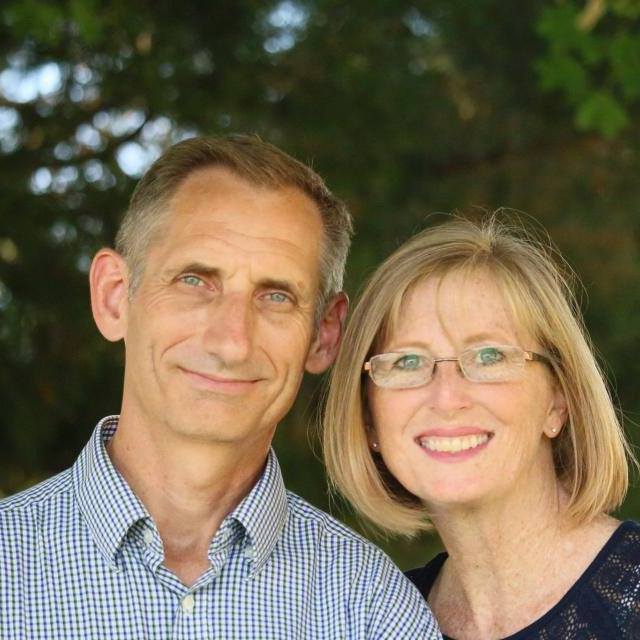Liberia, West Africa. Dan Neal spent time growing up in Papua New Guinea, the son of missionaries. He now serves as operations director for Heart to Heart International (HHI). He was recently on an advance team for HHI into Liberia. He shared his heart experience, as it was broken during one of their many encounters. When David Phillips, Field Strategy Coordinator for the Southeast Asia Field Heard this he responded, “This has to be shared. It brings an understanding to the crisis that not many of us are aware of.”
ELWA hospital outside capital of Monrovia, Liberia.
On Sept 26th we visited ELWA hospital, which was the first Ebola Treatment Unit (ETU) in Monrovia, Liberia. It is also the place where Dr. Kent Brantley was infected with Ebola. The hospital administrator wanted to show us the hospital even though it was closed, except for a handful of patients.
We were about to walk into the hospital when a taxi driver started yelling at us. We turned and saw that in the taxi cab there was a lady in distress. She was in labor and the taxi had brought her to ELWA from another hospital that had turned her away. The taxi driver was desperate to get the lady out of his cab. The lady was crying, in pain and desperate for help.
As a result of the commotion a group of bystanders started to gather and they looked with expectation at us, a team of American aid workers. We were there to help, right?
We did in fact have the capability. Standing there just feet from the taxi were two doctors and an ob nurse. We were just outside a hospital and had medical supplies in our van just yards away.
We could have helped… but we didn’t. We stood there with our hearts breaking and our minds calculating the risks of taking action.
The seeming obviousness of the situation was driven home by the cabbie, “This is a hospital”, he yelled, “why aren’t you helping her?”
This exact scenario was why our Heart to Heart team went to Liberia. We were determined to find a way to help with the health crisis by taking care of patients who don’t have Ebola. The problem that we found is that there is no way to know who has Ebola and who doesn’t. It is true that an infected person who is asymptomatic (does not have symptoms) is not contagious. However, as soon as a infected patient shows symptoms, which could happen at any time, they are contagious and can infect other people.
The first symptoms of Ebola are fever, tiredness, headache, and nausea which are the exact same symptoms of a dozen other diseases. There is not enough laboratory testing capacity in the country to test every patient for Ebola before you treat them. Even if there was, getting a blood sample to test is a risky procedure requiring full PPE. Just taking someone’s blood pressure means you have to touch them and that means full PPE suits.
Based on this we decided that it is not practical or safe for to us to provide any kind of “normal” healthcare to anyone in this environment. The risks to are too great.
So what is the answer?Supplies for Liberia prepared by Heart to Heart International
As hard as it sounds the only the priority in Liberia right now is stopping Ebola. When the epidemic is over, other healthcare services can again be safely provided.
To this end HHI has decided to pursue operating an Ebola Treatment Unit (ETU). This effort will contribute to the overall fight against the epidemic by isolating and treating Ebola patients. This effort will also keep others from being infected by the virus. Once the outbreak is over we will turn our focus to helping the healthcare situation return to normal.
Thank you to Dan Neal, HHI, who allowed us to share his story.
This means that the crisis within the crisis will continue for now. People will continue to get sick and die of preventable diseases. These indirect “costs” of Ebola will be very high but in our estimation unavoidable. We hope that one of those indirect costs is not the lady and her unborn baby that we turned away at the hospital.
Please continue to keep the Heart to Heart International team members in your prayers. They worked hand-in-hand with our Philippine Nazarene Disaster Response workers on the ground in the Philippines, in the aftermath of Typhoon Haiyan (Yolanda).
Please continue to keep those in Liberia and the rest of West Africa in your prayers. We have many, Nazarene brothers and sisters who are daily facing the reality of this tragedy.
For more information on the efforts of Heart to Heart International visit there site here.







